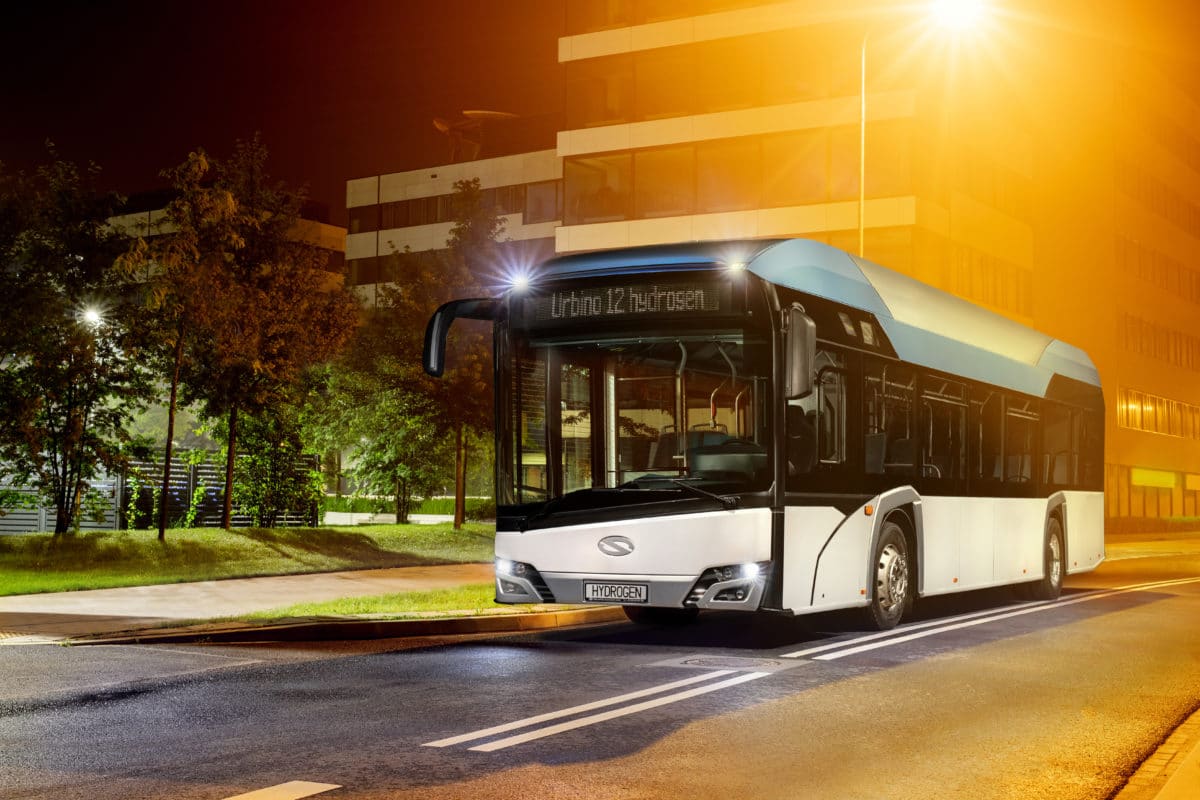U.S. trading company Tramo, Vienna-based Austria Energy Group and Austrian renewable energy developer Oekowind have signed a memorandum of understanding for the production of a hydrogen/green ammonia plant to be developed in Chile with an estimated annual production capacity of 1 million tons of green ammonia. This project, in Chile, will be one of the first to commercialize green ammonia. It will be based on a 2 GW wind farm.
A team of researchers at the Research Center for Energy Networks and Energy Storage (FENES) of the East Bavarian Technical University (OTH) Regensburg, led by Professor Michael Sterner, is developing a hydrogen atlas for Germany. The interactive, continuously updated database will show which power-to-X plants are installed, indicating also related regional value chains. The project will be built gradually. The final version should be available in 2023. “The hydrogen atlas offers users the opportunity to assess potential, consumption, costs and emission reductions on a regional level,” Sterner explains. “This provides them with a comprehensive tool that facilitates entry into concrete technical planning.”
Canadian integrated energy company Suncor and Canadian holding company ATCO are looking into a potential “world scale clean hydrogen project” in Alberta. The decision follows support messages from the government of Canada and the government of Alberta, both in favor of emission-reduction projects. “Approximately 20% of the produced clean hydrogen could be used in the Alberta natural gas grid to further reduce emissions,” read a note released on Tuesday, adding that the majority would be used in refining processes and co-generation of steam and electricity at the Suncor Edmonton Refinery. The project should produce more than 300,000 tonnes per year of clean hydrogen.
Japanese petroleum company Eneos and Japanese multinational automotive manufacturer Toyota Motor are exploring hydrogen applications at Woven City, a prototype city in Susono City, Shizuoka prefecture. Eneos should establish a hydrogen refueling station and produce green hydrogen. The two companies are also interested in conducting joint advanced research on hydrogen supply. “At Woven City, they intend to promote carbon neutrality in everyday mobility, people's lives, and within the infrastructure of the city itself,” read a statement released on Monday.
Japanese transport company Mitsui O.S.K. Lines (MOL) and Mitsui E&S Machinery are carrying out a joint study to introduce hydrogen fuel port cargo handling machinery. As part of the agreement, MOL signed a “contract for a new, near-zero emission, rubber-tired gantry container yard crane, and decided to introduce it at the MOL-operated Kobe International Container Terminal.”
Professor Kondo-Francois Aguey-Zinsou, who leads the Hydrogen Energy Research Centre (HERC) at the University of New South Wales (UNSW), said that Australia is at the cutting edge of the hydrogen revolution and will increasingly collaborate with other countries. The comment came at the launch of a new hydrogen advisory firm called H2Potential, which will act as an incubator and an accelerator of hydrogen businesses. In collaboration with LAVO, Aguey-Zinsou helped produce the world’s first residential/commercial hydrogen battery, which stores 40 kWh of energy. That’s almost three times the capacity of a Tesla Powerwall 2, which offers 13.5 kWh.
An international alliance of 45 companies, knowledge institutes and port authorities, headed by the Port of Rotterdam Authority, has been awarded nearly €25 million in EU funding, wrote the Port of Rotterdam on Tuesday. “The consortium will be using this grant to execute ten pilot projects and demonstration projects that focus on sustainable and smart logistics in port operations,” read the note, adding that many details are not yet clear. Anyhow, the Port of Rotterdam explicitly mentioned green hydrogen among the potential renewable fuels and energy carriers.
Germany confirmed its interest in funding hydrogen, with both Länder and the federal state looking into projects that could allow the country to become a “global technology supplier.” An example is the hydrogen hub planned in Huntorf by Oldenburg-based energy, telecommunications and information technology company EWE and Dusseldorf-headquartered energy company Uniper. “Green hydrogen is an indispensable building block for the energy transition. That's why we are funding five innovative research projects across Lower Saxony with a total of €6 million. Here in Huntorf, the DLR Institute for Networked Energy Systems and Clausthal University of Technology are now using the compressed air storage power plant to investigate the potential of using green hydrogen in thermal processes,” Lower Saxony's minister for science and culture, Björn Thümler, commented in a note released on Monday.
Poland-based Solaris Bus & Coach has sold 13 hydrogen vehicles to Frankfurt. The buses are to be deployed on target routes in 2022. “The technology used in the Urbino hydrogen [bus] makes for absolutely environmentally friendly transport, thanks to the use of energy supplied by a fuel cell (of 70 kW),” read a note released last week. Earlier this year, the company signed deals for hydrogen buses with companies based in Germany, Italy, Austria and the Netherlands.
This content is protected by copyright and may not be reused. If you want to cooperate with us and would like to reuse some of our content, please contact: editors@pv-magazine.com.



By submitting this form you agree to pv magazine using your data for the purposes of publishing your comment.
Your personal data will only be disclosed or otherwise transmitted to third parties for the purposes of spam filtering or if this is necessary for technical maintenance of the website. Any other transfer to third parties will not take place unless this is justified on the basis of applicable data protection regulations or if pv magazine is legally obliged to do so.
You may revoke this consent at any time with effect for the future, in which case your personal data will be deleted immediately. Otherwise, your data will be deleted if pv magazine has processed your request or the purpose of data storage is fulfilled.
Further information on data privacy can be found in our Data Protection Policy.